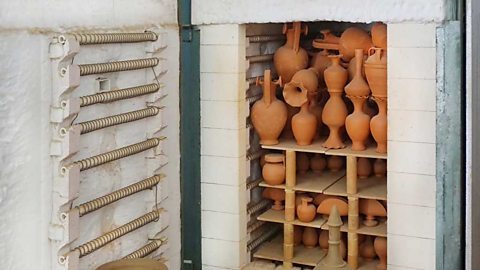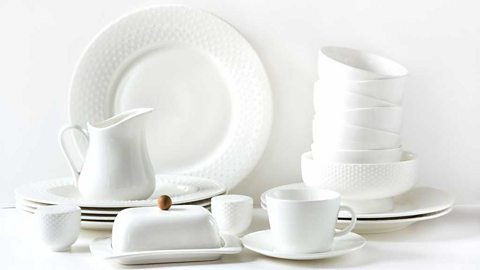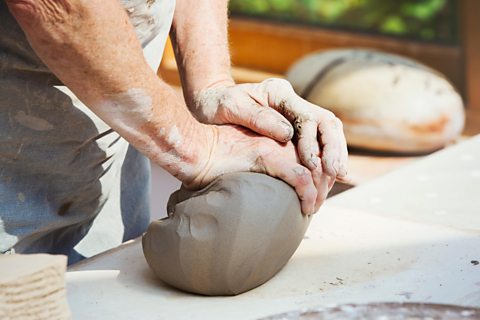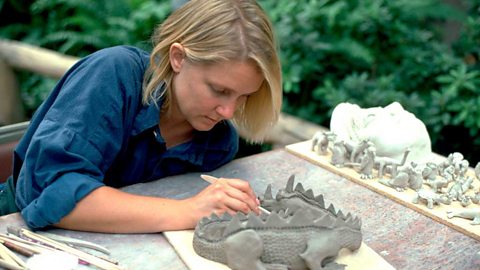Ceramics
Ceramics means working in clay to produce three-dimensional forms. ÔÇÿCeramicÔÇÖ describes clay which has been firingTurning raw clay into ceramic through high-temperature heating, often in a kiln. Clay usually goes through two types of firing: bisque firing and glaze firing..
Clay and the stages of drying

Clay is the raw material used in ceramics. It is found deep underground and is dug from quarries. It is a versatileAble to be used in many different ways or for different purposes material.
Clay hardens and sets in shape when heated to high temperatures in a kilnA large, hot oven used to fire clay. Clay must be fired in a kiln in order for it to turn into ceramic. A kiln can reach temperatures of 1300┬░C (2500┬░F)..

ItÔÇÖs ideal for creating functionalDesigned to have a use or purpose everyday items such as cups, bowls, plates, teapots, jugs and vases. Sculptors also use clay to make sculptures because it is easy to work with.
Stages of clay
Wet clay

ÔÇÿWet clayÔÇÖ is clay in its natural form. At this stage the clay is still soft. This makes wet clay ideal for sculpting and adding pattern or texture to its surface.
Leather-hard clay

ÔÇÿLeather-hard clayÔÇÖ is firmer than wet clay - it is good for detailed carving. Clay is leather-hard when it has dried for a few hours and has become slightly stiff. It feels cool to the touch.
At this stage, a lot of the water has evaporated and the surface is not sticky. It is still soft enough to make alterations. This is the best time to carve into it or to join slabs together.
Leather-hard clay is not ready to go into the kiln because it still contains too much water. Firing clay that is not dry can cause it to explode, crack or break.
Greenware
ÔÇÿGreenwareÔÇÖ is clay that has dried completely. This can be achieved by placing it in a drying cupboard A metal cupboard with a heating source to dry the clay out, but not to fire it. It is then ready to be fired in a kiln. The drying time for clay depends on the thickness of the piece.
At this stage, the clay is fragile. Avoid overhandling the work to prevent damage.
Question
What is the advantage of leather-hard clay?
Leather-hard clay is partially dried, but still soft enough to work. It is good to carve, including detailed carving and it is at the right stage to join pieces together.